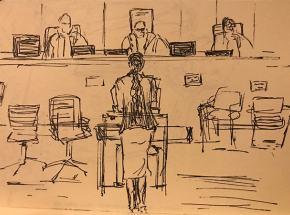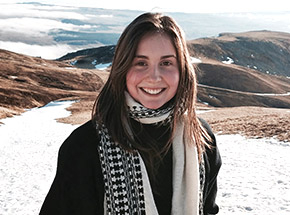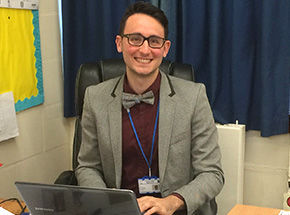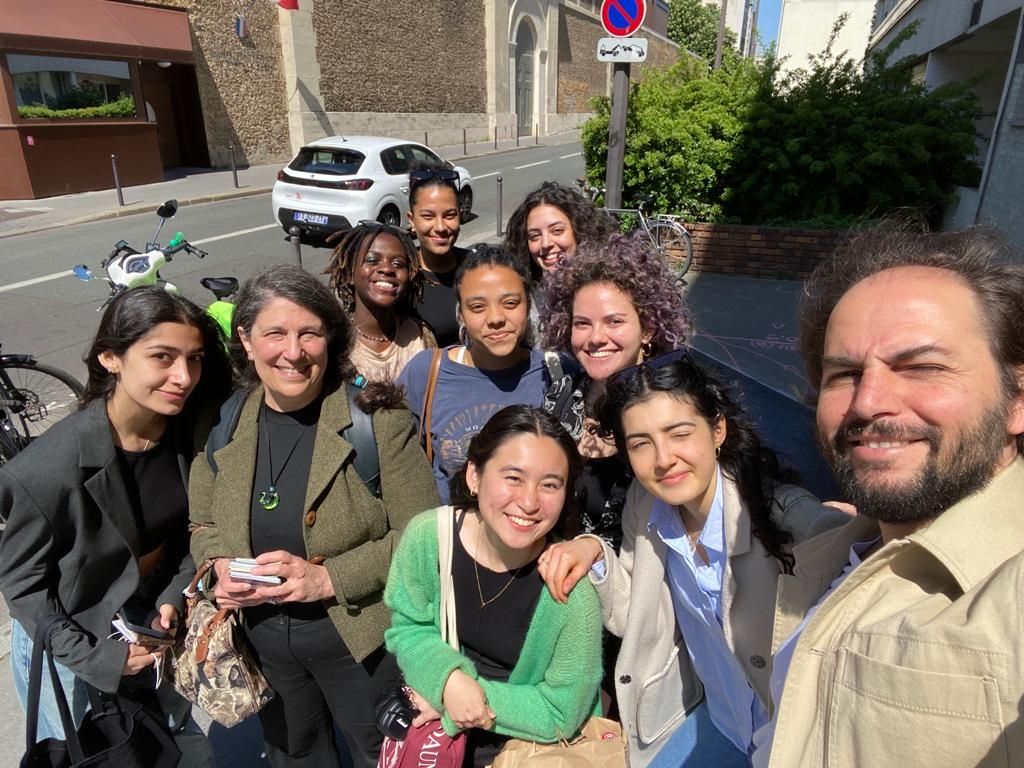- About AUP
- History of AUP
- Mission & Core Values
- Vision and Leadership
- AUP Recognition
- Alumni Success
- Campus Development
- Arts at AUP
- Policies & Guidelines
- Academics
- Undergraduate
- Graduate Programs
- MA in Diplomacy and International Law
- MA in Global Communications
- MSc in Human Rights and Data Science
- MA in International Affairs
- MA in International Affairs, Conflict Resolution, and Civil Society Development
- MSc in International Management
- MSc in Strategic Brand Management
- Find Your Thesis Advisor
- Previous Programs
- Cultural Program
- Faculty
- Summer School
- Research Centers
- The Center for Critical Democracy Studies
- Upcoming Events
- Research Projects
- Fellows’ Publications
- Publishing
- Curriculum
- Community
- Partnerships
- Visiting Scholars
- CCDS Highlights
- Atelier de Théorie Politique – Paris
- Critical Theory 101: Future Directions and New Challenges
- Martti Koskenniemi on “The Law of International Society: A Road not Taken”
- Academic Freedom Symposium
- Tocqueville Colloque 2023
- Violent Turns Conference
- Degenerations of Democracy
- DEMOS21 Inaugural Event
- What Demos for the 21st Century?
- The Paris Centennial Conference
- Justice Stephen Breyer
- Civic Jazz - The Launch of the Center
- Past Events
- FR
- The Center for Writers and Translators
- The George and Irina Schaeffer Center for the Study of Genocide, Human Rights and Conflict Prevention
- The Joy and Edward Frieman Environmental Science Center
- The Center for Media, Communication & Global Change
- The Center for Critical Democracy Studies
- Departments
- Academic Resources
- Academic Affairs
- Academic Calendar
- Academic Resource Center
- Library
- Registrar's Office
- Teaching and Learning Center
- Accessibility & Accommodation Services
- AI@AUP: A Campus-Level Initiative
- Quai D'Orsay Learning Commons
- Paris as Classroom
- ACE
- Admissions
- Student Life
- Campus
- Student Leadership & Involvement
- Paris
- Support Services
- Student Life Help Desk
- Student Accounting Services
- Student Immigration Services
- Student Grievance Procedure
- Diversity and Inclusion
- Health & Well-being
- Digital Student Handbook
- News
- Events
- AUP Giving
- Housing Offer for 2025-2026
- IT Services
- Alumni
- About AUP
- History of AUP
- Mission & Core Values
- Vision and Leadership
- AUP Recognition
- Alumni Success
- Campus Development
- Arts at AUP
- Policies & Guidelines
- Academics
- Undergraduate
- Graduate Programs
- MA in Diplomacy and International Law
- MA in Global Communications
- MSc in Human Rights and Data Science
- MA in International Affairs
- MA in International Affairs, Conflict Resolution, and Civil Society Development
- MSc in International Management
- MSc in Strategic Brand Management
- Find Your Thesis Advisor
- Previous Programs
- Cultural Program
- Faculty
- Summer School
- Research Centers
- The Center for Critical Democracy Studies
- Upcoming Events
- Research Projects
- Fellows’ Publications
- Publishing
- Curriculum
- Community
- Partnerships
- Visiting Scholars
- CCDS Highlights
- Atelier de Théorie Politique – Paris
- Critical Theory 101: Future Directions and New Challenges
- Martti Koskenniemi on “The Law of International Society: A Road not Taken”
- Academic Freedom Symposium
- Tocqueville Colloque 2023
- Violent Turns Conference
- Degenerations of Democracy
- DEMOS21 Inaugural Event
- What Demos for the 21st Century?
- The Paris Centennial Conference
- Justice Stephen Breyer
- Civic Jazz - The Launch of the Center
- Past Events
- FR
- The Center for Writers and Translators
- The George and Irina Schaeffer Center for the Study of Genocide, Human Rights and Conflict Prevention
- The Joy and Edward Frieman Environmental Science Center
- The Center for Media, Communication & Global Change
- The Center for Critical Democracy Studies
- Departments
- Academic Resources
- Academic Affairs
- Academic Calendar
- Academic Resource Center
- Library
- Registrar's Office
- Teaching and Learning Center
- Accessibility & Accommodation Services
- AI@AUP: A Campus-Level Initiative
- Quai D'Orsay Learning Commons
- Paris as Classroom
- ACE
- Admissions
- Student Life
- Campus
- Student Leadership & Involvement
- Paris
- Support Services
- Student Life Help Desk
- Student Accounting Services
- Student Immigration Services
- Student Grievance Procedure
- Diversity and Inclusion
- Health & Well-being
- Digital Student Handbook
- News
- Events
- AUP Giving
- Housing Offer for 2025-2026
- IT Services
- Alumni
Paris as Classroom
Paris as Classroom
Prison Education
What AUP’s Prison Education Program Teaches Us About Learning
How do we learn? At AUP, our answer is built on the idea of sharing diverse perspectives and reflecting on one’s own place in the world. We believe it is vital for students to connect with their communities, engage with new viewpoints and rethink their own assumptions.
The Democracy Lab on Prison Education is a fantastic example of this process in action; it brings together AUP students and people detained at Paris La Santé prison to learn through collaborative textual analysis. The approach is inspired by Walls to Bridges, a Canadian nonprofit, and the United States’ InsideOut Prison Exchange program, both of which provide for-credit courses in prisons and through which “inside,” or incarcerated, students learn alongside “outside” students enrolled in colleges and universities.
AUP’s version in Spring 2023 took eight French-speaking undergraduate students into La Santé to learn alongside people detained there through a series of reading workshops, discussions and creative activities. It was designed to encourage participants to ask fundamental questions about what it means to learn from each other, particularly when connecting across the huge divisions created by the carceral system and class.
In 2023, Professor Hannah Taieb of the Department of History and Politics, the founder and architect of the prison workshop in France, organized the Democracy Lab on Prison Education at AUP alongside Professor Roman Zinigrad, a law professor in the same department. The workshop is hosted by AUP’s Center of Critical Democracy Studies, which promotes the practice, study and life of democracy both within and beyond the University. It builds on a previous collaboration between Taieb and two former AUP professors, Michelle Kuo and Albert Wu, who ran a multilingual prison education project in 2019, and is continuing in June and July 2023, as Professors Taieb and Kuo conduct a six-week summer class in La Santé.
During the Spring 2023 workshop, both inside and outside students took part in icebreaker exercises designed to overcome the initial barriers they may have experienced when it came to engaging with one another. “Whatever stereotypes people have about incarcerated people become hard to retain when they’re talking face-to-face,” says Professor Taieb. She explains that this also applies to the stereotypes inside students may hold about university students: “We’re rejecting both the isolation of university communities and the prison walls that separate people into two categories.”
Participants then read short texts that dealt with themes such as memory, learning, separation or the senses, and experimented together in small groups to create a written or performed response. This process of self-expression encouraged participants, both “inside” and “outside” students, to develop critical thinking, nurture intellectual and emotional maturity, and establish new learning environments. Students find themselves asking fundamental questions about each text; not only “What does this mean?” but also “Why does it matter?” “This Democracy Lab provides our students with an opportunity to formulate questions and engage in conversations that they can’t have anywhere else,” notes Professor Zinigrad. “The workshop is essential to their understanding of contemporary questions of human rights and social justice.”
Feedback from participating AUP students highlighted the benefits of learning from those with different life experiences. Student Ria Phi called the class one of her most meaningful experiences at AUP so far. “I got to see firsthand the value of taking interdisciplinary approaches while experiencing the joy of human connection,” she explains. Another AUP participant, Gabby Bashizi, agreed that the program helped her understand how different life experiences impact individuals’ interpretations of the same texts: “I deepened my understanding of both the French language and of our humanity.”
At the end of each of these Democracy Lab programs, organizers hosted a graduation reception in the prison itself, attended by AUP students, staff and faculty. The event included readings from both inside and outside students, and all participants received a certificate of completion in recognition of their work. “Over the months we’ve been running the program, people’s initial approaches to prison have been replaced with something more human,” says Taieb. “Instead of seeing prison or people in prison, they’re instead seeing faces and names.”
Related
-

Terror Trials
Paris as Classroom
Read MoreTerror Trials
Paris as Classroom
“I have found myself applying the theory I encountered in class in real-life scenarios,” says Stephanie Bergon, undergrad.
-

Savannah
Student
Read MoreSavannah
Student
I’ll never forget how beautiful it was to see our small class come together to organize a conference in honor of End Violence Against Women Day.
-

Ignacio Paz ’09
Alumnus
Read MoreIgnacio Paz ’09
Alumnus
I was lucky enough to take my FirstBridge class with the legendary Julie Thomas and Kathleen Chevalier.

